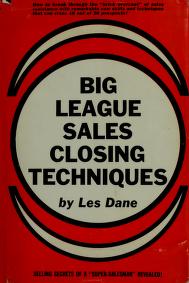Difference between revisions of "Scientology and Money"
| Line 1: | Line 1: | ||
Money and Scientology would seem to be virtually synonymous subjects if one looks at or reads much of anything about the corporate church of Scientology. | Money and Scientology would seem to be virtually synonymous subjects if one looks at or reads much of anything about the corporate church of Scientology. | ||
| − | + | [[File:Dollar symbol.jpg|left|200px]] | |
Some important distinctions need to be made early on however if we are to come to a rational understanding of the role, and abuse, of the subject of money in regards to "Scientology". | Some important distinctions need to be made early on however if we are to come to a rational understanding of the role, and abuse, of the subject of money in regards to "Scientology". | ||
Revision as of 13:15, April 25, 2014
Money and Scientology would seem to be virtually synonymous subjects if one looks at or reads much of anything about the corporate church of Scientology.
Some important distinctions need to be made early on however if we are to come to a rational understanding of the role, and abuse, of the subject of money in regards to "Scientology".
The 'church' is not Scientology
Note: The word "church" is in lower casethe whole sum of past by-passed charge. (HCOB 19 Aug 63)![]() when referring to the corporate entity known as "the church of Scientology.
when referring to the corporate entity known as "the church of Scientology.
Scientology is NOT the church of Scientology.
The church of Scientology is NOT Scientology.
The first thing to know about Scientology and money, and this is admittedly a tough one to get one's wits around, is that everything you may have heard about "Scientology", its lust for and obsession with accumulating money, is in reference to the corporate entity called the church of Scientology.
The SUBJECT of Scientology has nothing to do with money. Let me repeat that - the SUBJECT of Scientology has nothing to do with money.
LRHL. Ron Hubbard mum on the subject
The founder of Scientology, L Ron Hubbard, is significantly mute on the subject of money except as to how his organizations are to deal with it. (more on that in a minute) He left no direction or instructions to parishioners, none whatsoever, as to how they should handle their own personal finances. (if anyone has a reference please add it to the discussion feature)
There are many many references from him as to how the organizations are to eschew borrowing and debt. He admonished staff to always pay cash for everything, including real estate, and never allow the organizations to become insolvent or out of balance with their cash/bill ratio.
He also famously and consistently ordered staff to make money for the organization. He demanded "registrarsIn a Scn org, the person signs up people for Scn service (HCO Admin Ltr 30 Jul 75)![]() " (organization sales people) be trained on "Big League Sales"[1] and many other sales techniques so they would become proficient at getting parishioners to pay for church services. There is no question L Ron Hubbard was a diligent and demanding overseer of church finances.
" (organization sales people) be trained on "Big League Sales"[1] and many other sales techniques so they would become proficient at getting parishioners to pay for church services. There is no question L Ron Hubbard was a diligent and demanding overseer of church finances.
He demanded abundant income while zealously keeping a tight rein on expenditures.
Understanding the history of the church's embattled past, taking into consideration the overwhelming opposition to its success and the forces at play that would have snuffed out the fledgling organization had it not maintained very strict financial policies, is very important to keep in mind3. a network of communications and pictures, energies and masses, which are brought into being by the activities of the thetan versus the physical universe or other thetans. The mind is a communication and control system between the thetan and his environment. (FOT, p. 56)...MORE![]() when evaluating the origins of Hubbard's obsessions with making them solvent.
when evaluating the origins of Hubbard's obsessions with making them solvent.
see The World L Ron Hubbard Lived In for some context
While Hubbard steadfastly monitored the income and outgo of the organizations, he also omitted giving his parishioners any advice as to how to handle their personal finances.
Some believe this was a character flaw and a self-serving intentional omission in order to do nothing to restrict the cash flow1. an impulse or direction of energy particles or thought or masses between terminals. (HCOB 3 Feb 69)...more![]() to church coffers.
to church coffers.
It should also be noted that throughout most of the time of LRHL. Ron Hubbard's oversight of the organization finances, prices for services were reasonably affordable for the average working person. This changed later on.
references
comments powered by Disqusrecent blogs
- Translating Scientolipedia/fr
- Podcast 0 Scientology Online
- Danger - Black Dianetics
- Streaming Scientology
- ScientologyOTC - Finding Our Voice
- How to Study Dianetics and Scientology
- Advanced Grades Confidentiality
- Outstanding Achievement Awards 2015
- Translating Scientolipedia/de
- Translating Scientolipedia/es

